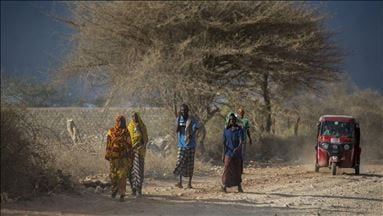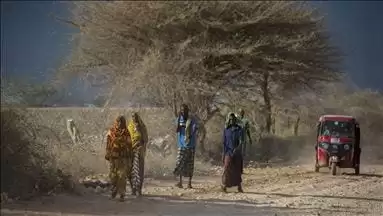

Last updated on September 11th, 2021 at 08:22 am
Up to 2.1 million human beings in Somalia are expected to face an acute meals insecurity Crisis (IPC Phase 3) or even worse outcomes through December 2020, a new report said on Wednesday.
The crisis predicted to show up “through December 2020 in the absence of humanitarian assistance,” is due to “the combined effects of vast and severe flooding, Desert Locust infestation, socioeconomic influences of COVID-19 and the cumulative influences of preceding shocks,” Food Security and Nutrition Unit (FSNAU), a challenge managed by way of the Food and Agriculture Organization of the UN, said in the report.
“In addition, 849,900 youth underneath the age of 5 are likely to be acutely malnourished via August 2021,” the file read.
“From October to December, meals insecurity is predicted to deteriorate amongst poor households with restricted farm animals or low capability to cope with harvest losses,” the file warned.
“2020 Gu cereal manufacturing in southern Somalia is estimated at 74,000 tons. This is forty percentage decrease than the long-term common for 1995-2019. The principal elements for below-average 2020 Gu cereal production include: recurrent and extreme flooding, erratic rainfall and a prolonged dry spell, insecurity and conflict,” FSNAU explained.
The record went on to warn that an extra three million people in the east African country “are expected to be Stressed (IPC Phase 2), bringing the total variety of humans dealing with acute meals insecurity to 5.1 million.”
“Humanitarian assistance have to be sustained via December 2020 to forestall Crisis (IPC Phase 3) or Emergency (IPC Phase 4) results for 2.1 million people,” FSNAU urged.
Climate change has been markedly felt in Somalia, Chad and the Sahel region, in accordance to remarks through Samba Harouna Thiam, the head of the UN Environment Liaison Office, in September last year.
Rising temperatures and unpredictable rainfall brought on by climate alternate have decreased crop yields. It is poor communities that often face higher publicity to climate hazards.
(AnadoluAgency)
On Friday, South Africa's government leaders warned that President Trump's wide trade tariff policies have zeroed out Africa's AGOA benefits.…
The Gujarat Titans (GT) team confirmed Thursday that fast bowler Kagiso Rabada is taking an early IPL 2025 exit to…
The International Finance Corporation gives Raxio Group $100 million to accelerate their data center building efforts throughout Sub-Saharan African regions.…
The Oklahoma City Thunder secured their tenth consecutive victory by beating the Chicago Bulls 145-117. This victory raised their season…
The Board of Control for Cricket in India introduced a detailed list of cricket matches that will take place at…
Rob Walter Resigns his Position as coach for the Proteas men's team for white-ball games because personal problems needed attention.…
This website uses cookies.